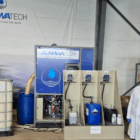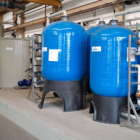Cyanide detoxification
Cyanide detoxification is an essential process in industrial wastewater treatment that aims to convert toxic cyanide compounds into less hazardous substances or eliminate them completely. Cyanides are used in many industries, including metalworking, electroplating, mining and the chemical industry, where they are often used for surface treatment of metals or







